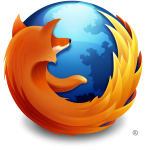I’m still here. Kinda.
I’ve been writing this blog since 2002, through a heck of a lot of changes in my life. The exact purpose of the blog has variety wildly over time, ranging from a personal blog to a writing exercise, to a linkblog, to a review site. Sometimes I post to it a lot, or like right now, this will be the third post of the year. The only thing that has been consistent about it is its purpose: the blog is an exploratory heuristic — it is an experiential tool to gain a better understanding of… well, whatever I need at the time. Sometimes it’s myself, sometimes it’s something marginally less selfish, like reviewing music, or discussing free speech, or sharing posts and videos that are themselves an experience (emotional, intellectual, whatever). This year, what I needed was to hide out. I didn’t realize it at first — I made grand goals of posting regularly, and of shifting the content to something more generally useful. But y’know what? Meh. There are other avenues for that that I already have set up (and can set up more, easily, if I decide I need to). This is, ultimately, my personal blog. That doesn’t mean it won’t occasionally have actually useful content, but more often than not, I expect it will continue to be a sketch of a human being. Hopefully an insightful one.
It’s reaching the end of the year, so for those who don’t read my Twitter or talk to me otherwise, let me catch folks up real quick:
- I’ve been unemployed, barring some freelancing, for a while. This has finally (finally!) changed, first with working for Cirque Du Soleil while they were in Portland this spring, and more recently, back in the saddle doing QA/Testing work.
- I was T-boned by a hit-and-run back in July, and because of lack of funds, I didn’t have collision insurance on my car. Still trying to raise funds to fix it, since all the reasonably reviewed collision repair places want payment in full.
- I’m still living in Portland, OR. I still love it here. I’m still dating Jessica. Things on that front are still good.
- I got into grad school at University of Denver, specifically their Digital Media Studies program, which sounds like a pretty great fit. Because of the car accident, though, I’ve deferred for a year, and will reassess what my situation is as next year approaches. The crushing student debt involved isn’t exactly enticing, even though the program sounds great.
Yeah, that’s the big stuff. Other than that, I’ve been largely laying low for the past while. I’ve not been to many meetings, conferences, unconferences, groups, et cetera — while there is interest, either the timing, or finances, or social energy, or some combination therein has been discouraging going out. I’ve been adjusting to working in an office again, surrounded by people for 8 hours a day (and then dealing with the commute), and so generally by the weekend, all I want to do is hide in my cave and read, or play video games, or watch cartoons, just in general things involving being left alone. I know that’s not sustainable (or at least not wise to do so), nor do I want to remain a hermit. Regardless, it’s how I’ve felt lately.
 The problems with IE are
The problems with IE are  Next up is Firefox, a very popular open-source effort run by Mozilla. It’s free, it’s open source, it’s cross platform, there are lots of themes and profiles and extensions you can get for it to make the browser do more, all of which makes it the darling of the geek community. It isn’t without its faults, however: the same extensions that make Firefox useful often contribute to browser instability, but Firefox without extensions is… well, lackluster. Which is to say: a plain copy of Firefox is a perfectly serviceable browser, but lacks anything to set it apart from other major browsers. That coupled with one of the slower load times and a rather substantial resource footprint makes it a less than ideal solution for someone trying to run a lean, stable system.
Next up is Firefox, a very popular open-source effort run by Mozilla. It’s free, it’s open source, it’s cross platform, there are lots of themes and profiles and extensions you can get for it to make the browser do more, all of which makes it the darling of the geek community. It isn’t without its faults, however: the same extensions that make Firefox useful often contribute to browser instability, but Firefox without extensions is… well, lackluster. Which is to say: a plain copy of Firefox is a perfectly serviceable browser, but lacks anything to set it apart from other major browsers. That coupled with one of the slower load times and a rather substantial resource footprint makes it a less than ideal solution for someone trying to run a lean, stable system. While Safari doesn’t have anywhere near the usage rates of IE or Firefox, it’s still a major contender in the browser wars, for three reasons: 1) It’s the default browser on every Mac system, and has the highest browser rates on Macintosh computers; 2) It’s the default (and until Opera Mini managed to strongarm their way onto it, only) browser on the iPhone, iPod Touch, and iPad; and 3) It’s cross-platform and free. I’ve been a diehard Safari user since it came out, only occasionally switching to Firefox or
While Safari doesn’t have anywhere near the usage rates of IE or Firefox, it’s still a major contender in the browser wars, for three reasons: 1) It’s the default browser on every Mac system, and has the highest browser rates on Macintosh computers; 2) It’s the default (and until Opera Mini managed to strongarm their way onto it, only) browser on the iPhone, iPod Touch, and iPad; and 3) It’s cross-platform and free. I’ve been a diehard Safari user since it came out, only occasionally switching to Firefox or  Opera is a trooper from the old browser wars. While it has incredible market penetration on devices and globally, as a desktop web browser it didn’t really get a strong foothold in the U.S. They’ve continued to improve the browser over a number of years (the current version as of this writing is 10.60), and at this point boast one of the most standards compliant, fastest browsers on the market, with a ridiculous amount of features. Which is the problem: there are so many features and customizations and tie-in services like
Opera is a trooper from the old browser wars. While it has incredible market penetration on devices and globally, as a desktop web browser it didn’t really get a strong foothold in the U.S. They’ve continued to improve the browser over a number of years (the current version as of this writing is 10.60), and at this point boast one of the most standards compliant, fastest browsers on the market, with a ridiculous amount of features. Which is the problem: there are so many features and customizations and tie-in services like  The last of the “big” browsers I wanted to mention was Google’s foray into the browser market, Google Chrome, and its development sibling Chromium. Despite being very new, Chrome has already gained a significant market share in terms of browser statistics, and not without reason: it’s fast; it breaks page viewing into separate processes to keep the entire browser from crashing when one page hits bad code; and, well, it’s made by Google. Frankly, while I appreciated some of the features of Chrome, I found it to be an incredibly slipshod application. The user interface was inconsistent and unclear on numerous occasions, with the preferences window being a morass of poorly explained buttons and hidden panels, and their handling of tabs becoming utterly useless once you get much over 20 tabs open. It’s easy to start cutting them some slack by saying “It’s a beta,” but let’s be realistic here. Google has made a point of hiring some of the smartest, most talented, capable people on the planet, and invested millions into the development and marketing of Google Chrome already. A product with that sort of backing feeling this slapdash is embarrassing for them and frustrating for the user. (Final gripe about this: despite their session-splitting to help prevent browser crashes, Chrome crashed on me when I tried to quit.)
The last of the “big” browsers I wanted to mention was Google’s foray into the browser market, Google Chrome, and its development sibling Chromium. Despite being very new, Chrome has already gained a significant market share in terms of browser statistics, and not without reason: it’s fast; it breaks page viewing into separate processes to keep the entire browser from crashing when one page hits bad code; and, well, it’s made by Google. Frankly, while I appreciated some of the features of Chrome, I found it to be an incredibly slipshod application. The user interface was inconsistent and unclear on numerous occasions, with the preferences window being a morass of poorly explained buttons and hidden panels, and their handling of tabs becoming utterly useless once you get much over 20 tabs open. It’s easy to start cutting them some slack by saying “It’s a beta,” but let’s be realistic here. Google has made a point of hiring some of the smartest, most talented, capable people on the planet, and invested millions into the development and marketing of Google Chrome already. A product with that sort of backing feeling this slapdash is embarrassing for them and frustrating for the user. (Final gripe about this: despite their session-splitting to help prevent browser crashes, Chrome crashed on me when I tried to quit.)